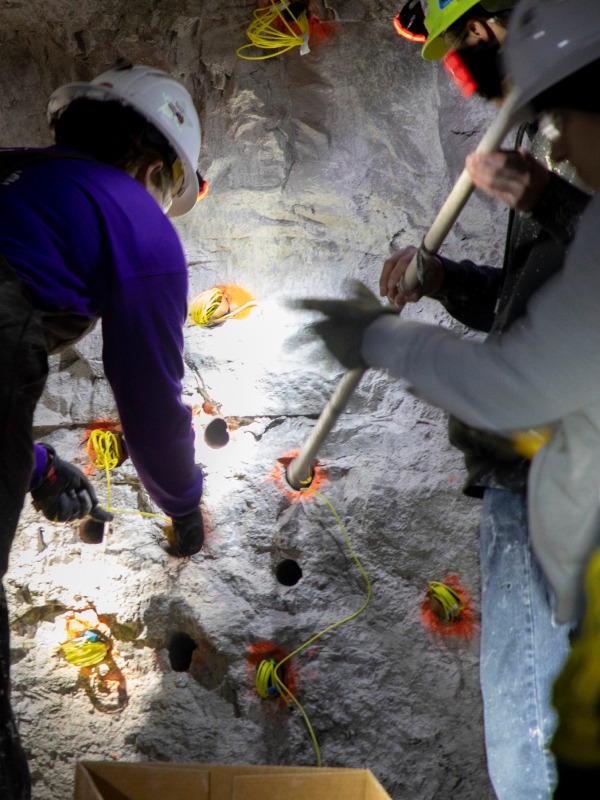Mining and Explosives Engineering
Master's Degree in Explosives Engineering
Earn a Master's Degree in Explosives Engineering
What sets S&T's M.S. degree in explosives engineering apart? It is the only one in the nation!
The program offers specialized training in the use of explosives, propellants and pyrotechnics that allows students to advance their careers. Students have exclusive research opportunities in world-class facilities, including the S&T Energetics Research Facility (ERF) and Experimental Mine.
Want to Know More?
Get info on our program, scholarships, how to visit campus, admissions and more. Take the next step in solving for tomorrow!
Degree Information
What Students Say About S&T

The hands-on knowledge and experience in energetics safety, research, manufacturing and application gained at Missouri University of Science and Technology give me a distinct advantage in my career with Northrop Grumman Corp. Within the Launch and Missile Defense Systems group, I lead a multidisciplinary team of engineers and skilled labor to manufacture solid fuel rocket motors for commercial and defense applications. Every day, I use the education and skills learned while earning my master's degree in explosives engineering to keep my team members safe and manage the financial, logistical and technical aspects of producing aerospace-quality energetics products.
— Jay Schafler
Research in Explosives Engineering
The United States recognizes the increasing importance of securing the supply chain for explosives, propellants and pyrotechnics because of their importance to industry and national defense. Explosives engineering faculty and students conduct research related to energetic materials, including explosives hazards and effective manufacture, transport, use and storage of explosives using experimental testing and numerical simulation. This research includes traumatic brain injury, rock blasting, structural response to blasts, effects of explosively formed projectiles (EFPs), shock physics and many other areas.
Explore Research Fields
Your Career in Explosives Engineering
Explosives engineers can choose from a variety of exciting careers, including research and development, testing, safety, production, field technical service, marketing, and teaching.
Explosives engineers work for national laboratories, universities, companies that develop and supply personal protective equipment, defense contractors, blasting & explosives companies, heavy civil construction companies, and many more.
Starting Salary
Average entry salary for S&T graduates with an explosives engineering/technology degree is $131,500
Career Paths
- Researchers (both government and private companies)
- Technical services engineers with explosives and blasting companies
- Engineers with consulting firms
- Law enforcement
Explosives Engineers Work With:
- Universities
- National Laboratories
- Law enforcement agencies
- Consulting companies


Follow Mining and Explosives Engineering